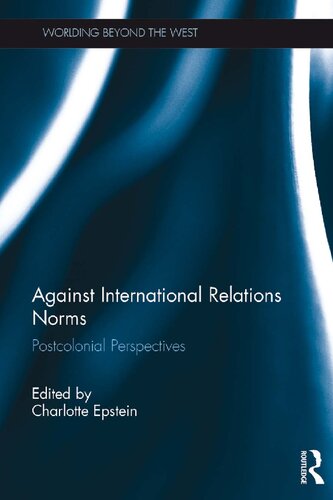

Most ebook files are in PDF format, so you can easily read them using various software such as Foxit Reader or directly on the Google Chrome browser.
Some ebook files are released by publishers in other formats such as .awz, .mobi, .epub, .fb2, etc. You may need to install specific software to read these formats on mobile/PC, such as Calibre.
Please read the tutorial at this link. https://ebooknice.com/page/post?id=faq
We offer FREE conversion to the popular formats you request; however, this may take some time. Therefore, right after payment, please email us, and we will try to provide the service as quickly as possible.
For some exceptional file formats or broken links (if any), please refrain from opening any disputes. Instead, email us first, and we will try to assist within a maximum of 6 hours.
EbookNice Team

Status:
Available4.7
8 reviewsThis volume uses the concept of ‘norms’ to initiate a long overdue conversation between the constructivist and postcolonial scholarships on how to appraise the ordering processes of international politics. Drawing together insights from a broad range of scholars, it evaluates what it means to theorise international politics from a postcolonial perspective, understood not as a unified body of thought or a new ‘-ism’ for IR, but as a ‘situated perspective’ offering ex-centred, post-Eurocentric sites for practices of situated critique.
Through in-depth engagements with the norms constructivist scholarship, the contributors expose the theoretical, epistemological and practical erasures that have been implicitly effected by the uncritical adoption of ‘norms’ as the dominant lens for analysing the ideational dynamics of international politics. They show how these are often the very erasures that sustained the workings of colonisation in the first place, whose uneven power relations are thereby further sustained by the study of international politics.
The volume makes the case for shifting from a static analysis of ‘norms’ to a dynamic and deeply historical understanding of the drawing of the initial line between the ‘normal’ and the ‘abnormal’ that served to exclude from focus the 'strange' and the unfamiliar that were necessarily brought into play in the encounters between the West and the rest of the world. A timely intervention, it will be of great interest to students and scholars of international relations, international relations theory and postcolonial scholarship.